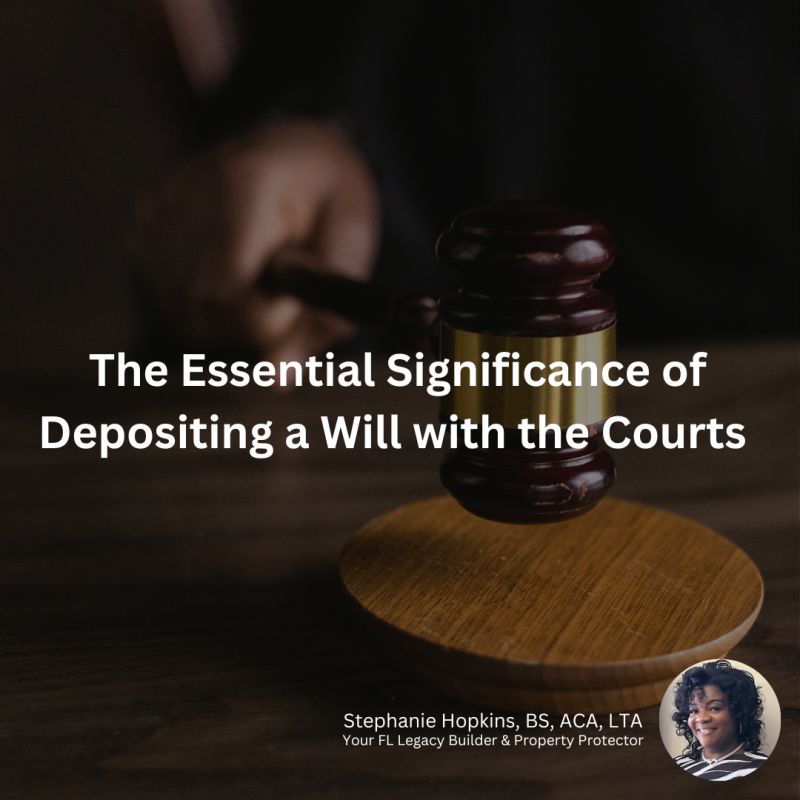
Have you ever been curious about the process of filing a Will with the courts? If you’ve wondered when and how this important step takes place, you’ve come to the right place.
Let’s dive in and unravel the mysteries surrounding the filing of Wills with the courts!
📜 The Meaning of Deposit:
Depositing a Will refers to submitting the original document to the court. This action ensures that the court has an official record of the Will’s existence and allows for its proper administration during the probate process.
⚖️ The Timing:
In Florida, depositing a Will with the courts typically occurs after the testator (the person who created the Will) passes away. It’s important to note that a Will isn’t automatically submitted to the courts upon its creation. Instead, it becomes a matter of public record once it has been filed with the court following the testator’s death.
📜 Who Files the Will:
The designated personal representative or executor of the estate is responsible for filing the Will with the courts. They must submit the original Will to the Clerk of the Court in the county where the testator resided at the time of their passing. It is crucial to provide the original document, as photocopies or digital copies are generally not accepted for probate purposes.
🏛️ Understanding the Process:
Depositing a Will with the courts is an integral part of the probate process in Florida. Probate involves validating the Will, overseeing the distribution of assets, and settling the deceased’s estate. The court’s involvement ensures compliance with the law and the intentions of the testator.
📞 Contacting the Clerk of the Court:
For specific guidance on how to deposit a Will with the courts in your Florida county, contact the local Clerk of the Court’s office. They will provide you with the necessary information, including instructions on the filing process and any associated fees.